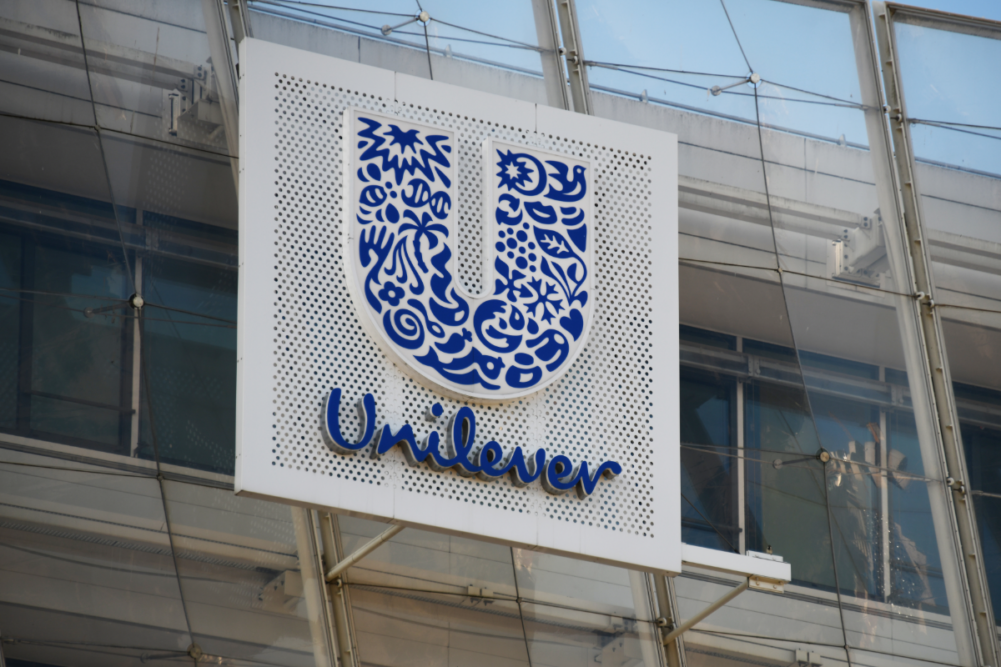LONDON – Unilever PLC is investing more in research and development to spur growth, but the company has reimagined its processes, with a focus on automation and partnerships.
“… The main message I want to give is there’s tremendous activity and change in progress happening within Unilever’s R&D,” said Graeme David Pitkethly, chief financial officer, during an Oct. 21 conference call to discuss third-quarter results. “Fundamentally, our innovation strategies, our science and technology strategy has been completely reviewed and is far more focused and strategic than it was before.”
The changes made have led to an innovation pipeline with fewer but bigger projects, said Alan W. Jope, chief executive officer.
“We’re more focused seeing fewer but bigger projects with a 30% cut in the number of projects, while doubling the average project size by 2022,” he said. “We’ve also doubled our product testing coverage measured against competition.
“Over 60% of turnover now wins in blind testing, which is a significant improvement versus 47% in 2019. And when we include products that test at parity to the best competition, we are unbeaten in 94% of tests. This, combined with a much fuller and more focused innovation funnel, has seen a step-up in the performance of our innovations launched.”
Mr. Pitkethly said Unilever’s R&D spend is different compared to three or four years ago and it is for two reasons.
“The first is our use of digital technology,” he said. “We now run thousands of experiments digitally instead of physically. In fact, in the last 12 months, we’ve performed 12,000 digital experiments, and that reduces time spent on trials and the time it takes to go to market.
“And we also build much automated technology into our innovation centers like our materials innovation factory in the UK. It’s got loads — huge number of robots doing material chemistry work for us, and it generates lots and lots of data much more quickly than traditional methods.”
The second area of change is external partnerships. In May, for example, Unilever announced a partnership with ENOUGH to develop plant-based meat alternatives. Based in Glasgow, Scotland, ENOUGH uses a zero-waste fermentation process to grow high-quality protein.
Another partnership announced in 2020 is with Algenuity, a company researching the viability of microalgae as an ingredient in foods and beverages. The companies are exploring the potential of bringing food containing microalgae to market.
“What we’re seeing is really great science come through into our innovations,” Mr. Pitkethly said. “Examples of that and big focus areas for us are next-generation biology around the microbiome, around biotechnology and surfactants, for example, around sustainable superior materials and formats.”
Since 2020, Unilever has entered more than 500 intellectual property-generating partnerships in categories like plant-based protein and the use of biotechnology for better cleaning, said Mr. Jope.
“Our highest priority markets are the US, India and China,” he said. “Together, these countries represent 35% of our turnover and their forecast to account for 60% of global growth by 2030. It is in these markets that we focus our investment in innovation, in channel development and talent. And they have a priority call on our capital allocation.”
Third-quarter sales for Unilever rose 4% to €13.5 billion ($15.7 billion). The company’s Food & Refreshment business unit had sales of €5.1 billion ($5.94 billion) during the quarter.
Out of home ice cream grew with Asia and Europe both growing well as countries re-opened, although ongoing travel restrictions and poor weather in Europe meant sales had not yet recovered to 2019 levels, according to the company. In-home ice cream sales declined as the business lapped strong growth in the prior period.
Food solutions sales grew double digit with China and markets across Europe and Latin America delivering sales above 2019 levels. Consumer demand for in-home food remained strong, although sales in the third quarter were slightly down as Unilever lapped a strong prior period of growth. Knorr and Hellmann’s both grew mid-single digit supported by product performance and investments in sustainable packaging, the company said.





